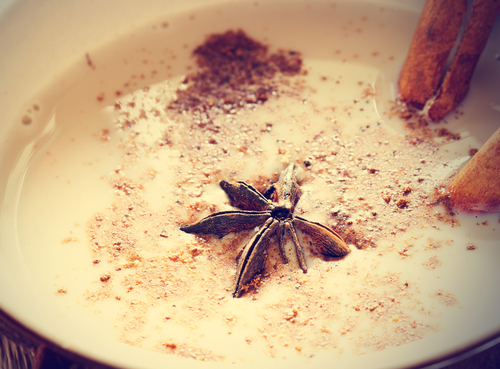Short answer
Chai tea has been around for centuries and has been recommended for its substantial health and medicinal benefits. Each of the spices contains powerful antioxidant properties that enhance the immune system and overall quality of life. Traditional chai tea contains milk which can be an issue for individuals with lactose intolerance. Because black tea contains caffeine some individuals may be sensitive to this ingredient. Overall, the benefits of chai tea far outweigh any potential risks.
Recommended Alternative
Long answer
Chai tea is popular around the world and dates back more than 5,000 years. The word “Chai“originates from the Hindi word meaning “tea.” Chai tea has its origins in South Asia and the tea leaves and various spices were initially used for their medicinal properties instead of just a recreational beverage. From an herbal perspective the tea was mostly recommended to calm the mind, help with tranquility and help with anxiety-but over time chai tea has proven to assist in multiple areas of cellular health. All of the chai ingredients have antioxidant power, anti-microbial properties and support the immune system.
Most chai tea contains black tea but some versions contain green tea as well. Black tea is one of the most popular teas in the world today and it is a powerful antioxidant because it is loaded with polyphenols. As most of us know, antioxidants are paramount when it comes to combating free radicals in the body and assisting with cellular stability. Black tea has been used for centuries to help stabilize brain chemistry and support a healthy digestive and cardiovascular system. Black tea is a source of caffeine and some individuals may be sensitive to this.
Chai tea has multiple ingredients which usually include cinnamon, cardamom, cloves, ginger, black peppercorns, milk and sometimes a sweetener like honey or plain sugar.
Cinnamon has often been touted as a glucose lowering spice. The studies have not been consistent but many health professionals recommend cinnamon for individuals dealing with sugar elevations in the blood stream. Cinnamon is heart healthy, may lower blood lipid levels and ongoing studies demonstrate positive effects in the realm of dementia. Cinnamon has natural anti-inflammatory properties and natural anti-microbial properties.
Cardamom is a seed pod that has an aromatic smell that is also a powerful antioxidant. The plant based nutrients in cardamom are flavanoids that help to combat the oxidation in our bodies that stem from toxicity and the free radicals that are created. Free radicals can cause cellular damage and can lead to DNA damage. With this type of damage, the body can be predisposed to chronic degenerative disease, inflammatory conditions and digestive disorders. Like cinnamon, the health benefits of cardamom are helpful in strengthening the immune system and supporting pathways that are important for detoxification. Cardamom is an important nutrient in chai tea that adds to the antimicrobial properties and overall health benefits of this beverage.
Cloves are also an aromatic herb that supports the antioxidant and anti-inflammatory content to this popular tea. Cloves have been used over the centuries to support the liver, support the immune system and has its own anti-microbial properties. Cloves have been used to help with anxiety and in the Asian culture, cloves are recommended to support brain chemistry and improve sleep cycles.
Another great ingredient in chai tea is ginger. Ginger comes in many forms but overall it is considered an anti-aging herb that has a strong presence in Aryvedic medicine. Ginger is great for the digestive system and is helpful with nausea and an irritable bowel. Ginger can help with flatulence and bloating and also adds to the antioxidant power of chai tea. The other digestive nutrient in chai tea is black peppercorn. The black peppercorn potentiates the positive effects of ginger and helps to regulate digestive absorption and colonic elimination.
Traditional chai tea often contains milk and a sweetener. Dairy milk can be eliminated or substituted with non dairy milk products and you can pick the sweetener of your choice. Overall this tea has many health benefits and the herbal spices support many cellular functions. Chai tea has a powerful punch when it comes to antioxidant and anti-inflammatory properties.
Possible short-term side effects
- can have a sensitivity to caffeine
- if milk is added-lactose issues
Ingredients to be aware of
- black tea
- dairy
- sweeteners

Benefits
- great antioxidant
- natural anti-microbial properties
- natural anti-inflammatory properties
- helps glucose levels
- supports the immune system
- supports brain chemistry
- helps anxiety
- digestive support
- detoxification
Our Wellness Pick (what is this?)
Numi Turmeric Chai Latte
- Organic turmeric blend
- Caffeine-free
- Hot or iced versatility
- Supports wellness
- 24 servings per box
 Approved by
Approved by 















